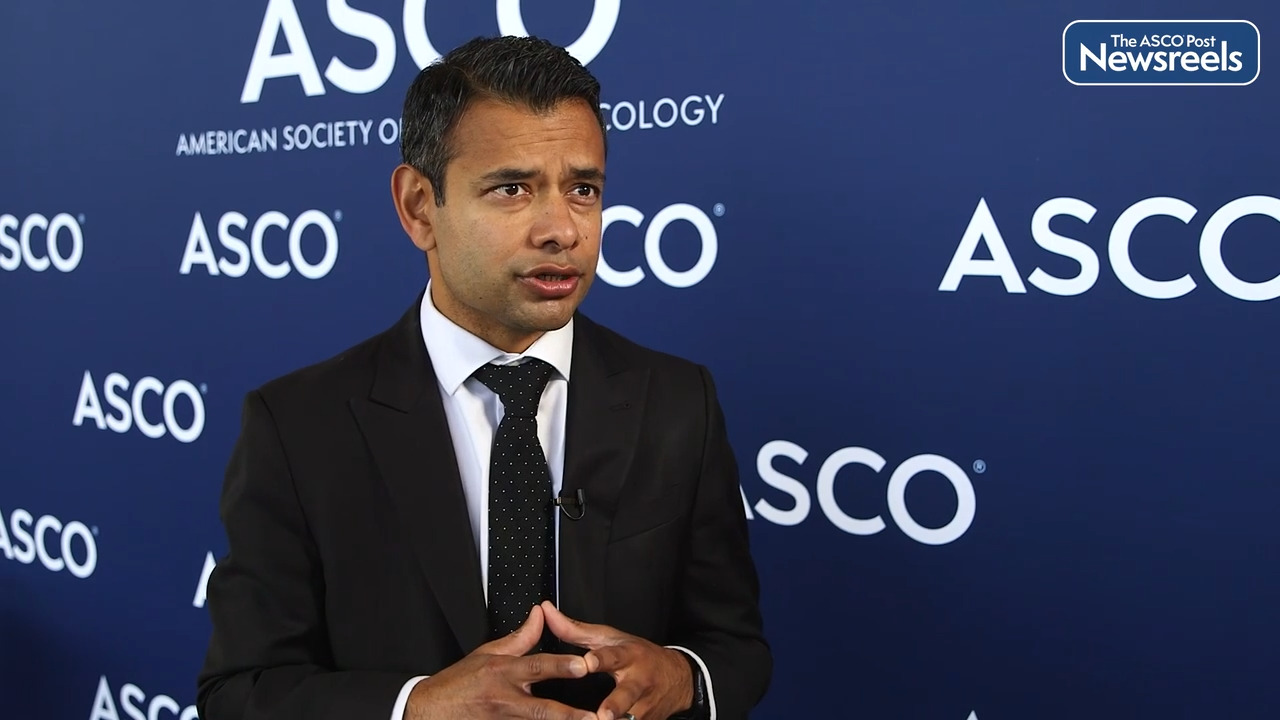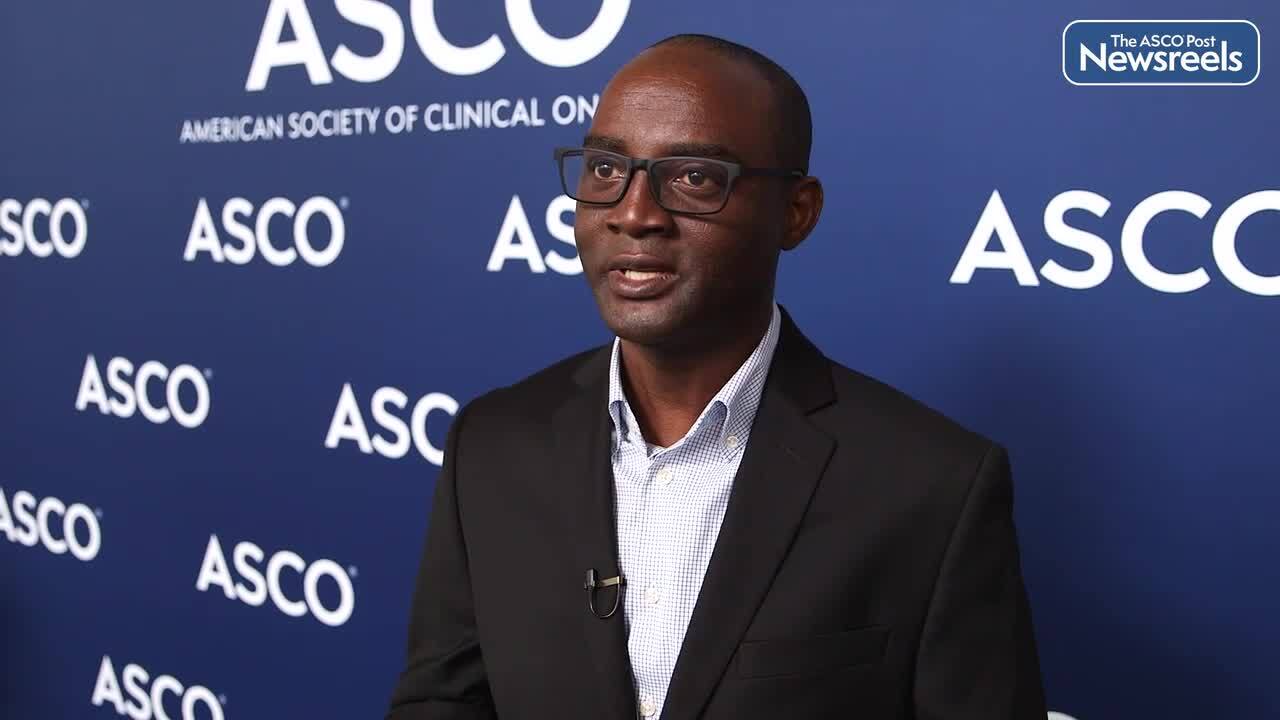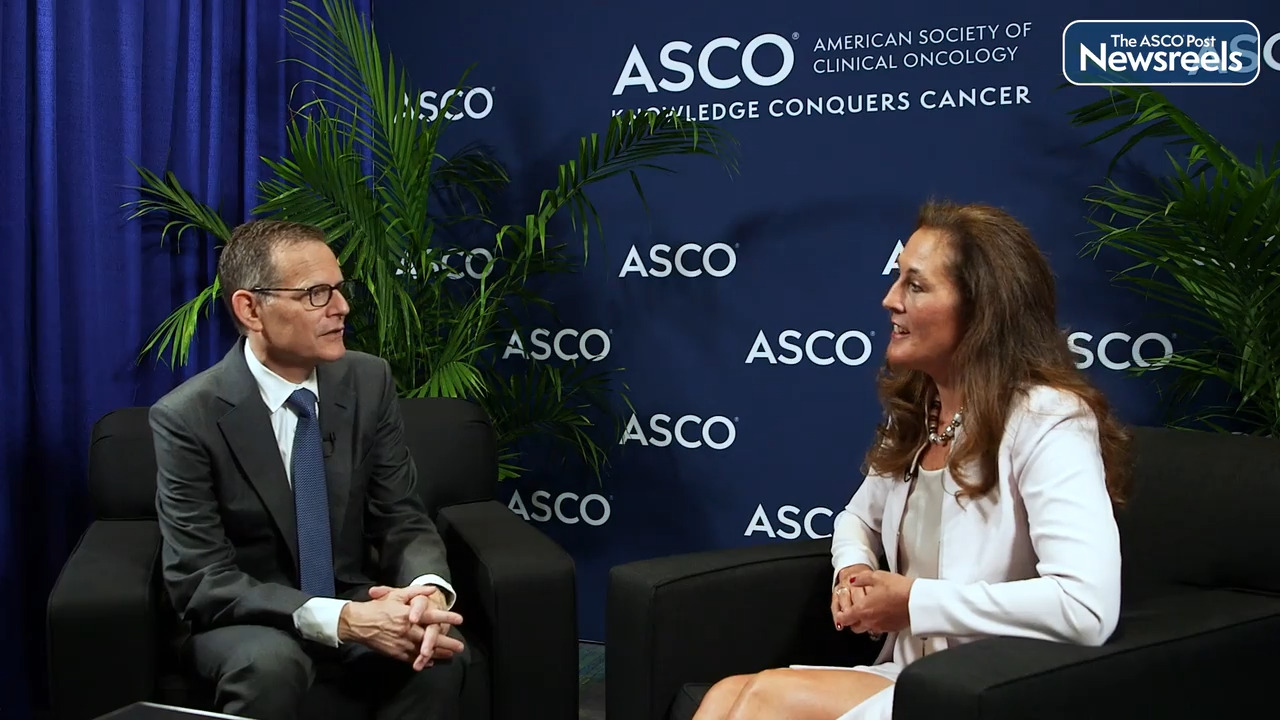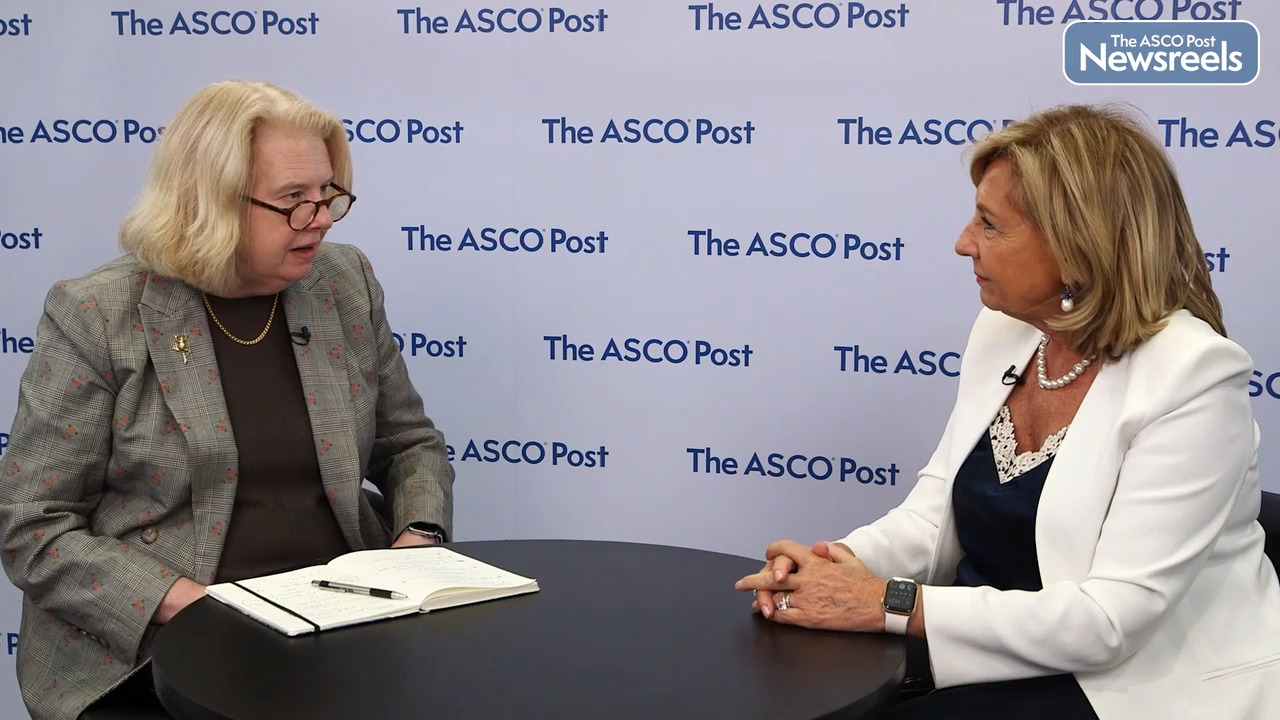Shilpa Gupta, MD, on Urothelial Cancer: Defining Who Is 'Platinum-Ineligible'
2022 ASCO Annual Meeting
Shilpa Gupta, MD, of the Cleveland Clinic Foundation, discusses an updated consensus definition for standard therapy and clinical trial eligibility for patients with metastatic urothelial cancer who are platinum-ineligible, criteria that are proposed to guide treatment recommendations for this population. This may be especially important now that the U.S. Food and Drug Administration has restricted the use of first-line pembrolizumab to those who are considered platinum-ineligible (Abstract 4577).
Transcript
Disclaimer: This video transcript has not been proofread or edited and may contain errors.
Frontline therapy for patients with metastatic urothelial cancer who are Cisplatin ineligible has continued to evolve. And the current standard of care is Gemcitabine and Carboplatin chemotherapy followed by durvalumab maintenance. In 2017, Atezolizumab and Pembrolizumab were approved as single agents for this patient population. But then the label was restricted to patients who are Cisplatin ineligible with high PD-L1 expressing tumors, or those who are not eligible for any platinum. And now Pembrolizumab use is only restricted to patients who are platinum-ineligible. Back in 2019, we presented results from our survey for defining platinum-ineligibility by sending a survey out to around 60 US-based medical oncologists. And we presented a consensus definition at GU ASCO that year. And now with the changing landscape, we updated the survey and used the similar cohort of responders to provide a consensus definition update. So we ask questions like: what equal performance status would physicians use to deem someone platinum-ineligible? What creatinine clearance cutoff would they use? What peripheral neuropathy cutoff, heart failure, cutoff? And in any person with ECOG performance status two, what would be the creatinine clearance cutoff? And based on the majority of responses, we found that most physicians found that creatinine clearance less than 30 milliliters per minute, peripheral neuropathy greater than are equal to grade two, significant heart failure that is NYHA class three or higher, equal performance status greater than our equal to three, and in a patient with equal performance status two, creatinine clearance of less than 30 milliliters per minute. Those were the factors that would make them hesitant to use Carboplatin. So we proposed that if any one of these criteria are met, that patient can be deemed as platinum-ineligible and be a candidate for single agent immunotherapy. Otherwise, we offered Gemcitabine and Carboplatin followed by durvalumab maintenance. Notably age was not a cutoff for these patients based on our survey.
The ASCO Post Staff
Sumanta K. Pal, MD, of City of Hope National Medical Center, discusses findings from the COSMIC-021 study, which showed that cabozantinib plus atezolizumab demonstrated encouraging clinical activity with manageable toxicity in patients with inoperable locally advanced or metastatic urothelial carcinoma. The combination was administered as first-line therapy in cisplatin-based chemotherapy–eligible and –ineligible patients and as second- or later-line treatment in those who received prior immune checkpoint inhibitors (Abstract 4504).
The ASCO Post Staff
Maxwell Oluwole Akanbi, MD, PhD, of McLaren Regional Medical Center, discusses the study he conducted, using the SEER database, to evaluate the impact of lung cancer screening recommendations on low-dose CT scanning. The data suggest that guidelines from the U.S. Preventive Services Task Force led to a more rapid decline in the incidence of advanced disease in the United States, especially among minority populations (Abstract 10506).
The ASCO Post Staff
Clifford A. Hudis, MD, of the American Society of Clinical Oncology, and Karen E. Knudsen, PhD, MBA, of the American Cancer Society, discuss their collaboration, pooling their research and education resources to help empower patients with cancer and their families. Within 48 hours, Drs. Hudis and Knudsen were able to gear up a rapid response to the crisis in Ukraine, forming a clinical corps of volunteers to post information online in multiple languages, which helped patients navigate their care in the war-torn region. To date, 300 European cancer organizations have joined their efforts.
The ASCO Post Staff
Ursula A. Matulonis, MD, of Dana-Farber Cancer Institute, and Nicoletta Colombo, MD, of the University of Milan and the European Institute of Oncology, discuss phase II results on the overall survival benefit of intermittent relacorilant, a selective glucocorticoid receptor modulator, combined with nab-paclitaxel, compared with nab-paclitaxel alone in patients with recurrent platinum-resistant ovarian cancer. A phase III trial comparing intermittent relacorilant plus nab-paclitaxel with investigator’s choice of chemotherapy in primary platinum-refractory disease is ongoing (Abstract LBA5503).
The ASCO Post Staff
Bradley J. Monk, MD, of the University of Arizona College of Medicine and Creighton University School of Medicine, discusses phase III findings from the ATHENA–MONO (GOG-3020/ENGOT-ov45) trial. It showed that rucaparib as first-line maintenance treatment, following first-line platinum-based chemotherapy, improved progression-free survival in patients with ovarian cancer, irrespective of homologous recombination deficiency status (Abstract LBA5500).





